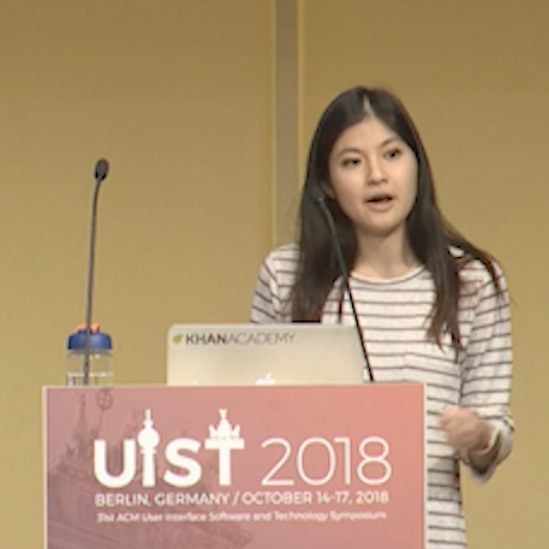Design, Technology, and Research (DTR)
The Design, Technology, and Research program is a supportive, collaborative community of designers, builders, and researchers focused on solving critical problems in the world. We develop systems that shape new experiences with people and technology. We work at the intersection of human-computer interaction, social and crowd computing, learning science, artificial intelligence, and design. Our supportive community enables students to gain experience leading cutting-edge research and develop into self-directed designers, engineers, and researchers who are well-positioned to design solutions to address people’s needs, explore new technologies that capture our imagination, and challenge ourselves to advance the state of the art through research.
We are an interdisciplinary community working on solving hard problems.
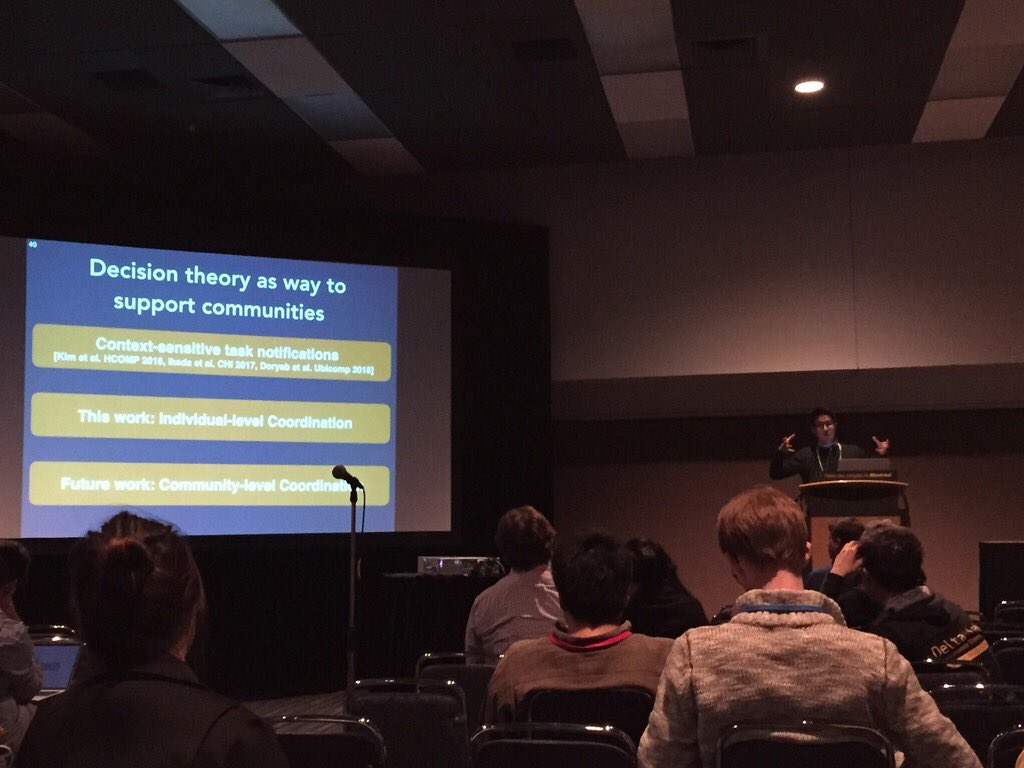
Interdisciplinary Problem Solving
We work on designing, implementing, and testing systems that solve real-world problems by conducting interdisciplinary research, using methods and theories from social computing, crowdsourcing, human-centered design, psychology, learning sciences, artificial intelligence, and organizational behavior.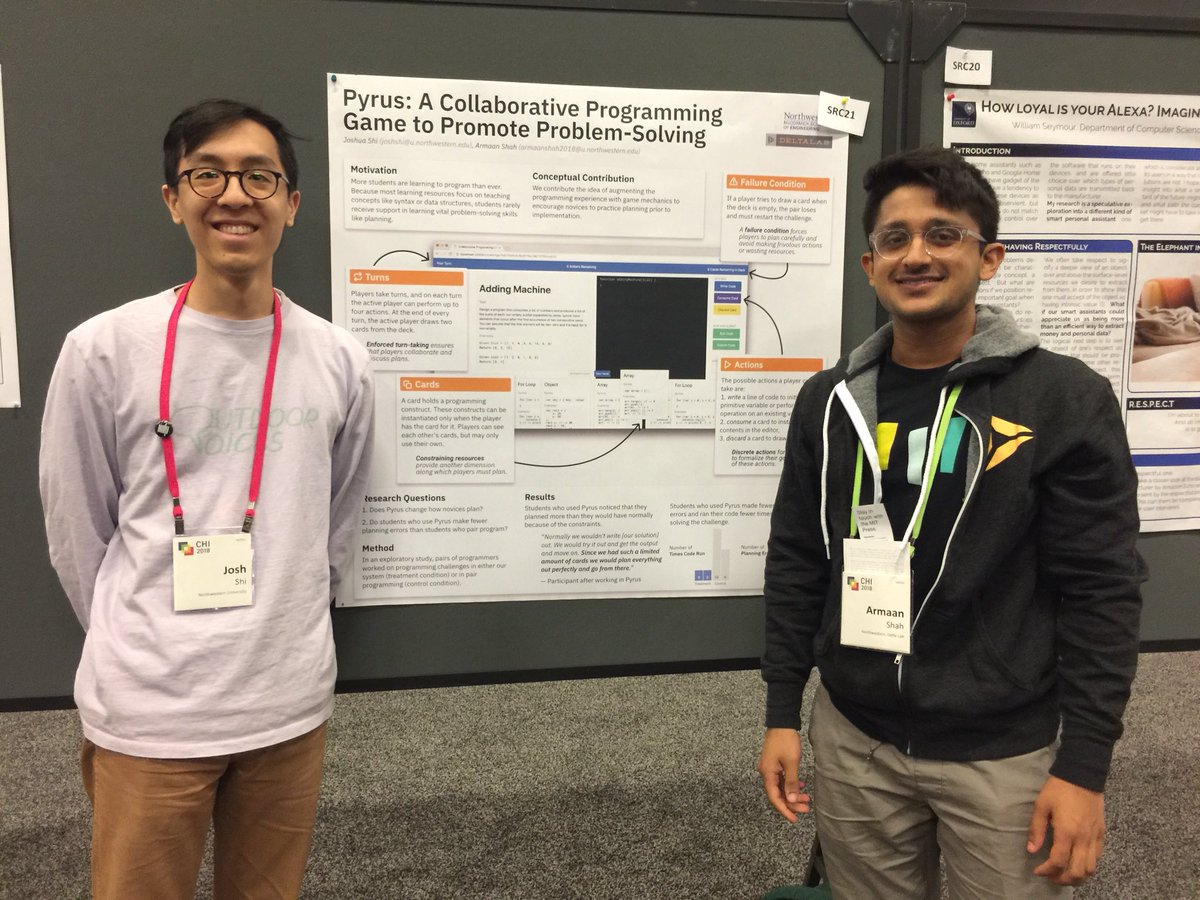
Communicating Research via Grants and Publications
Our students practice writing and submitting grant proposals and papers on their work. Undergraduates regularly receive funding though Undergraduate Research Grantsfor their projects. We publish research at conferences like CHI, CSCW, UIST, and HCOMP that make substantial contributions to a variety of academic disciplines. Our undergraduates regularly compete in student research competitions, often receiving awards for their research.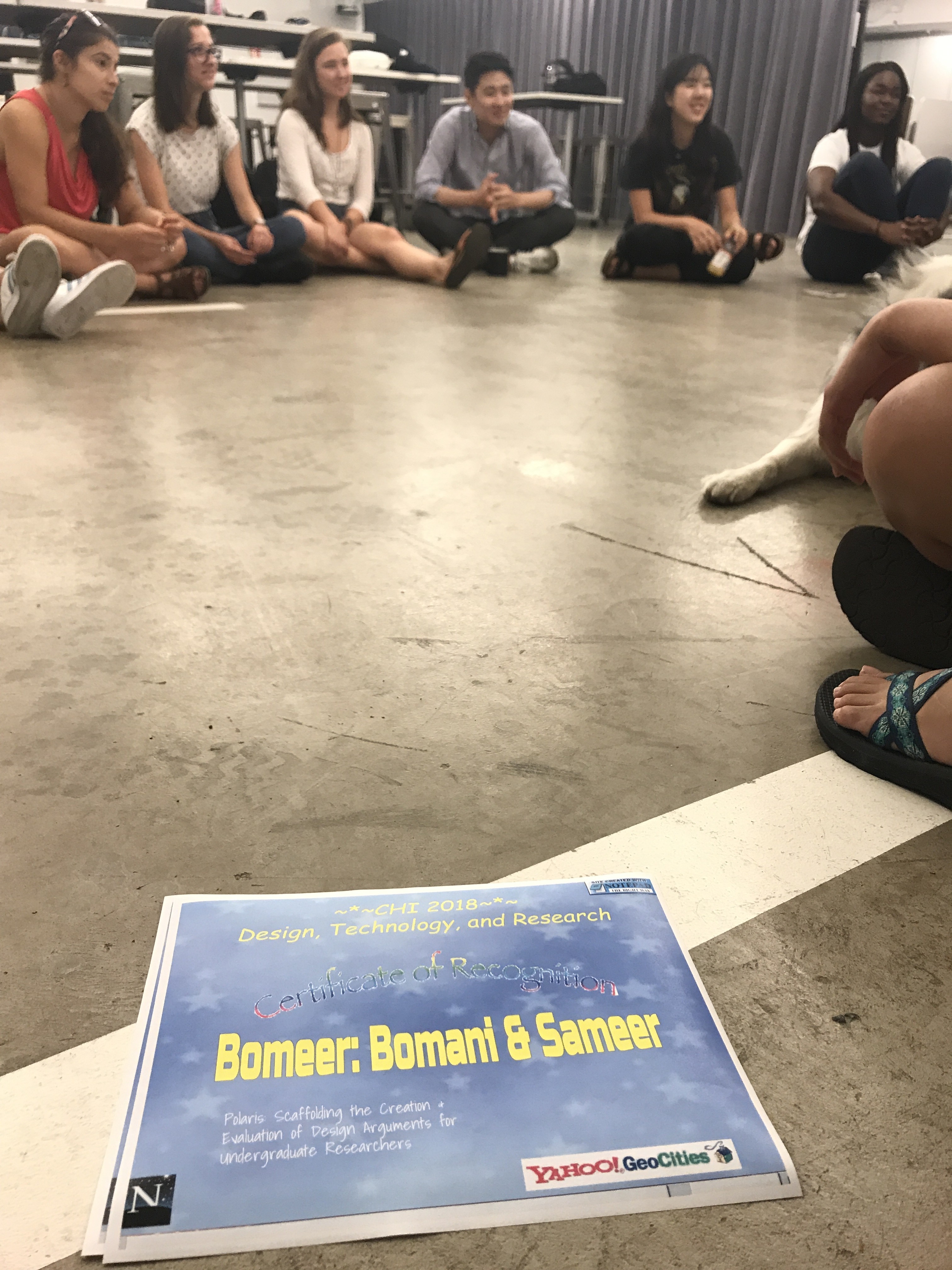
Celebrating Work Process, Not Just Outcomes
We celebrate and emphasize work process over outcomes. Our students receive DTR certificates for working towards a submission, not for getting research published. Students reflect on their growth at the end of each quarter, and grade themselves on their effort and process, not the outcomes of their work. We believe that with strong process and continued practice comes great outcomes.We train students to be self-directed researchers and mentors.
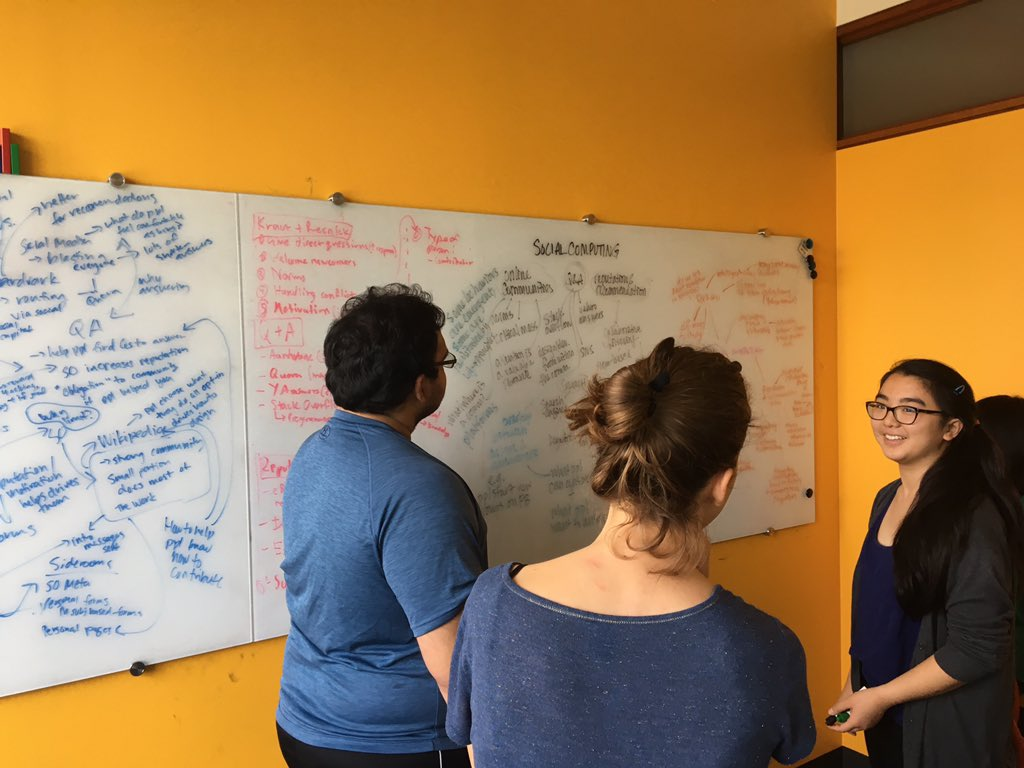
Rethinking Research Training
We rethink the roles of undergraduates and graduate students in research labs. Undergraduates and masters students learn to self direct through the whole research process, from research questions to writing a conference paper. Ph.D. students learn to self-direct through the research process, and also learn to mentor undergraduates and masters students by shadowing advisors in the first years to learn about mentoring and critique. We believe that by distributing support across the community, faculty can train more students in leading and mentoring research.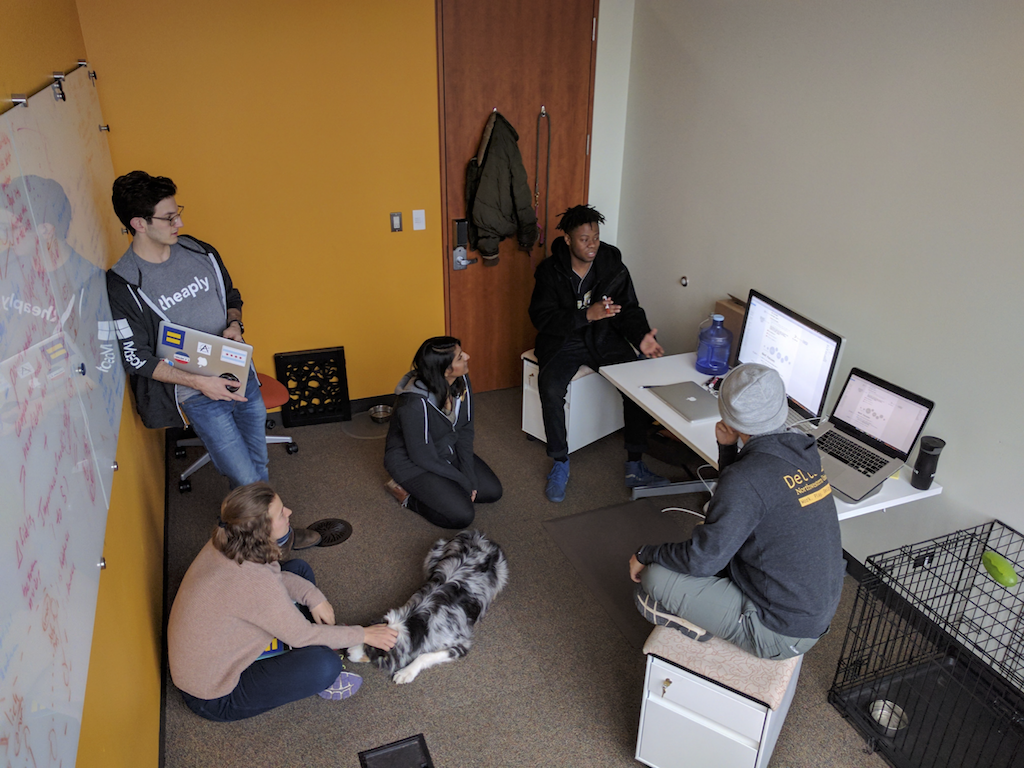
Research Goal Setting Through Canvases and Sprints
We teach conceptual models of research and rigorous methodologies to help strengthen our expertise (e.g., design arguments, research canvases, synthesis trees, etc.). We practice identifying the riskiest risks in our research and use agile methods to plan a slice of work that de-risks our research. We work in two-week sprints, where the sprint stories are conceived by students, rather than being assigned by mentors.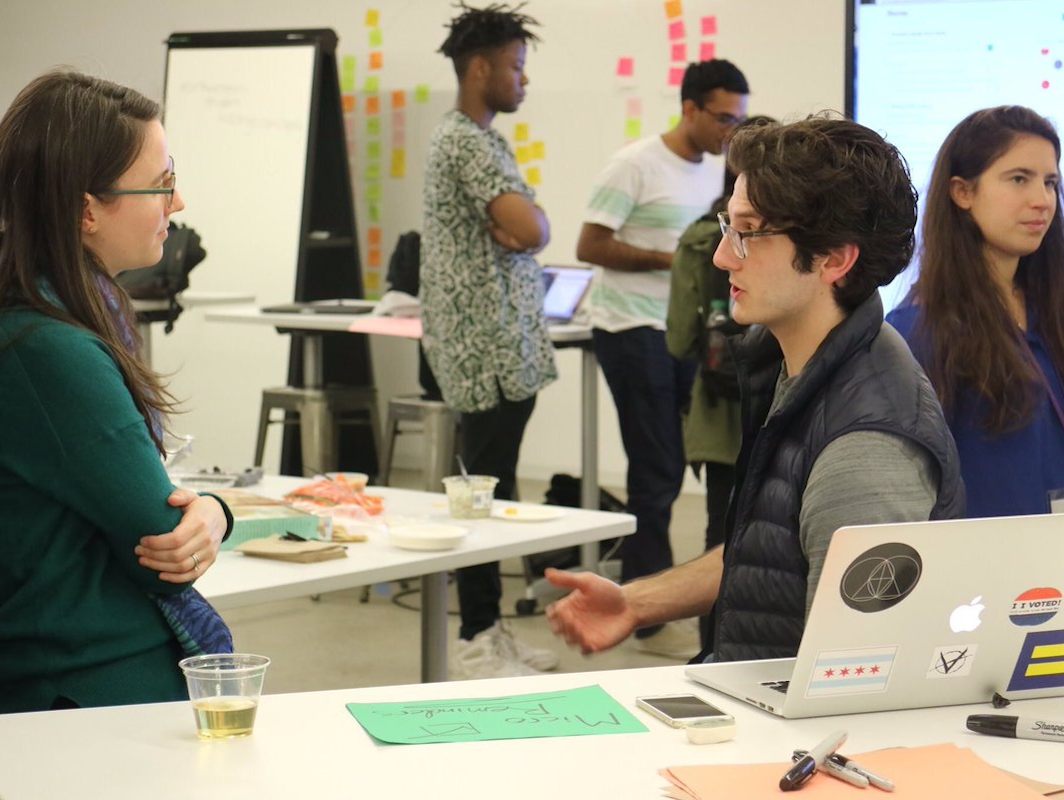
Reflection and Growth
We conduct regular self-assessments, where students use guided reflections to think about both their project and personal growth. Students regularly meet with mentors to discuss their personal goals, and how they might work to achieve them.We are a supportive, collaborative, playful community.
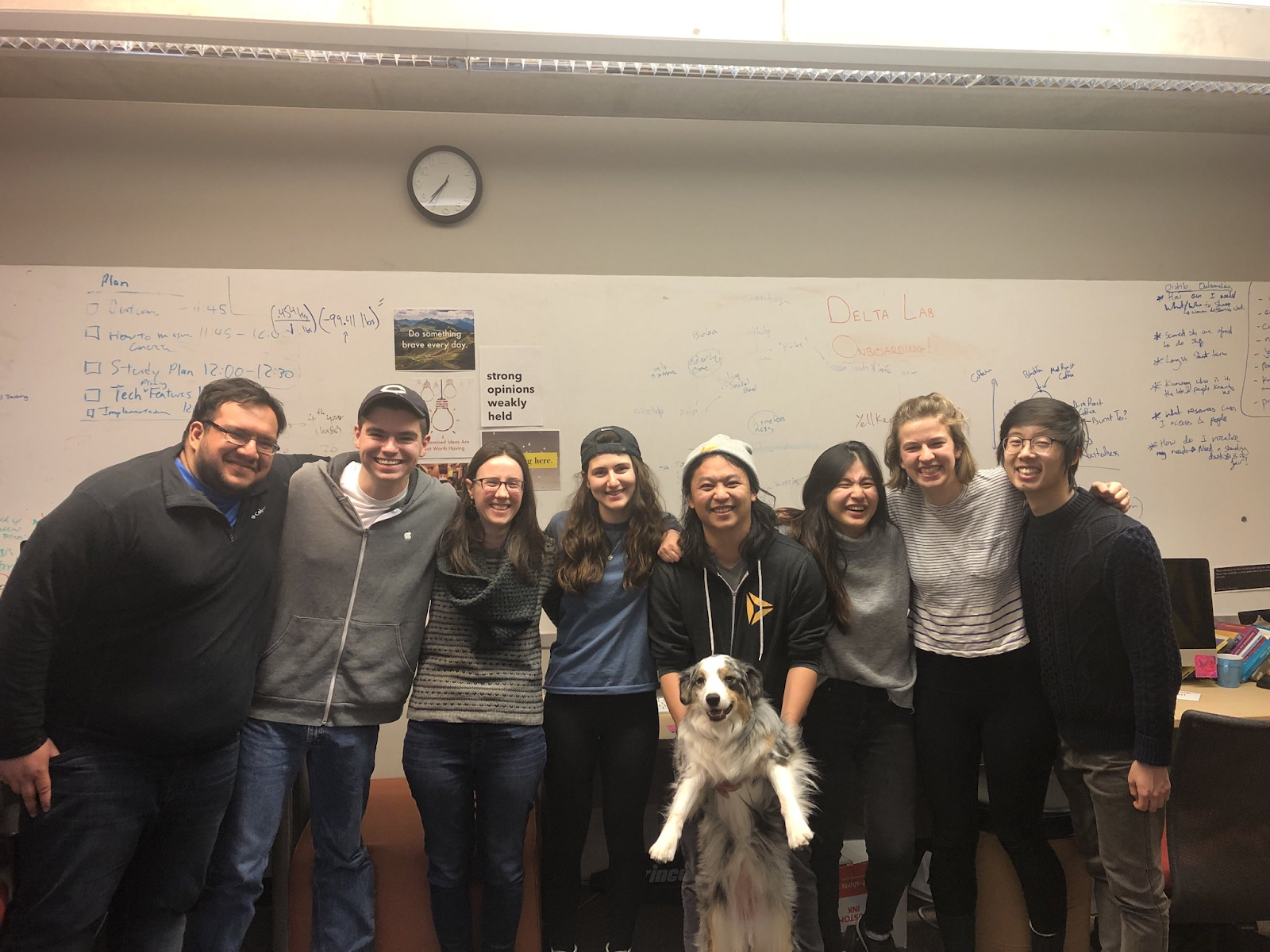
Help and Collaboration
We provide coordinated opportunities, such as Pair Research to offer and receive help with other students and faculty to overcome obstacles in our work. We believe every community member has areas of expertise that can be shared. Help-seeking from anyone in our 30 person studio is encouraged, in addition to the direct help from mentors and project teammates.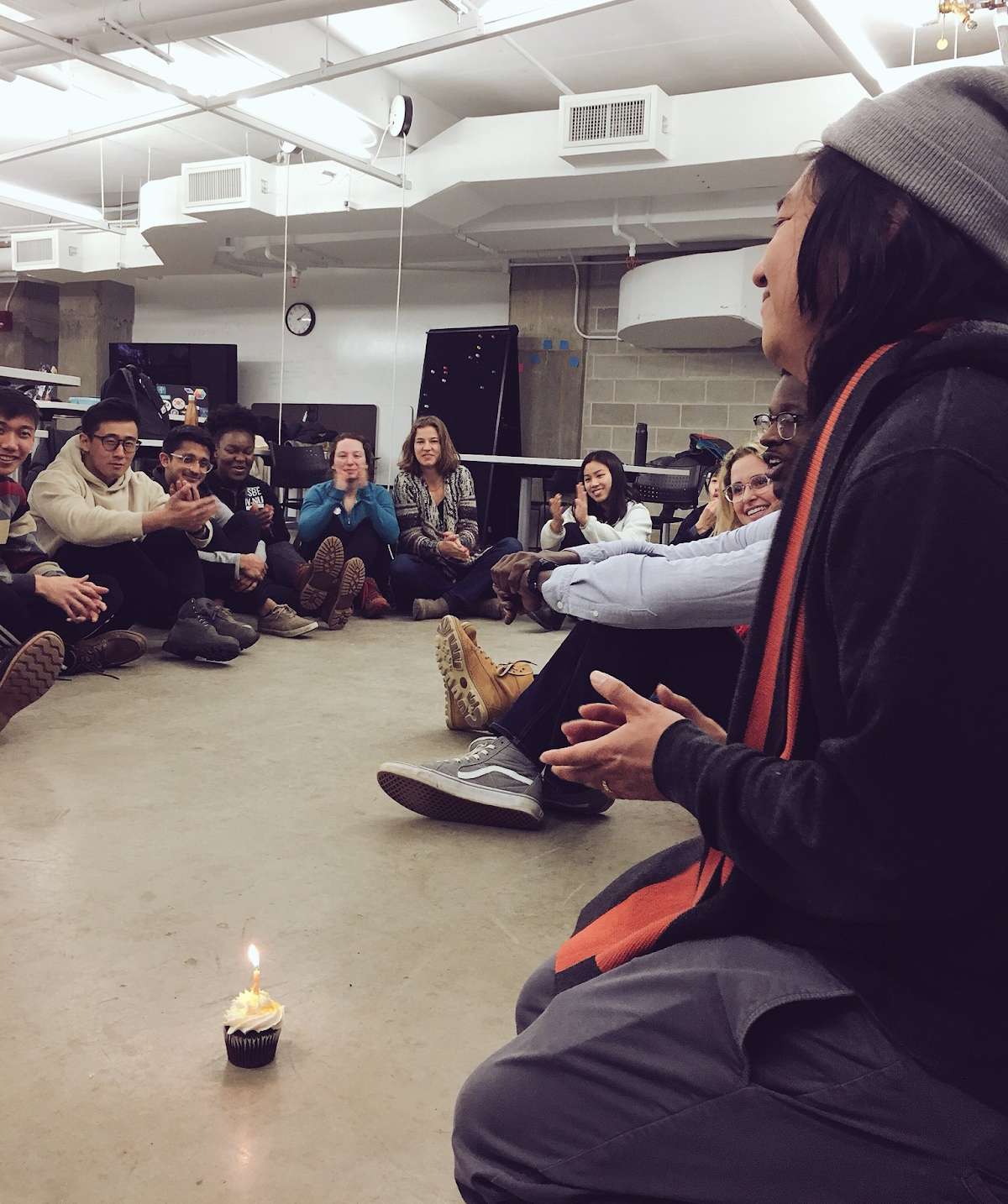
Research Mentoring
We meet once a week as a studio, providing students with opportunities to learn core research skills through lecture and practice. Students also take turns sharing their research and getting feedback from the DTR community. Students also meet with their special interest groups (SIGs) where they learn to plan research with their peers, grad student mentors, and faculty advisors. We believe that we can accelerate one anothers growth and learning by working together.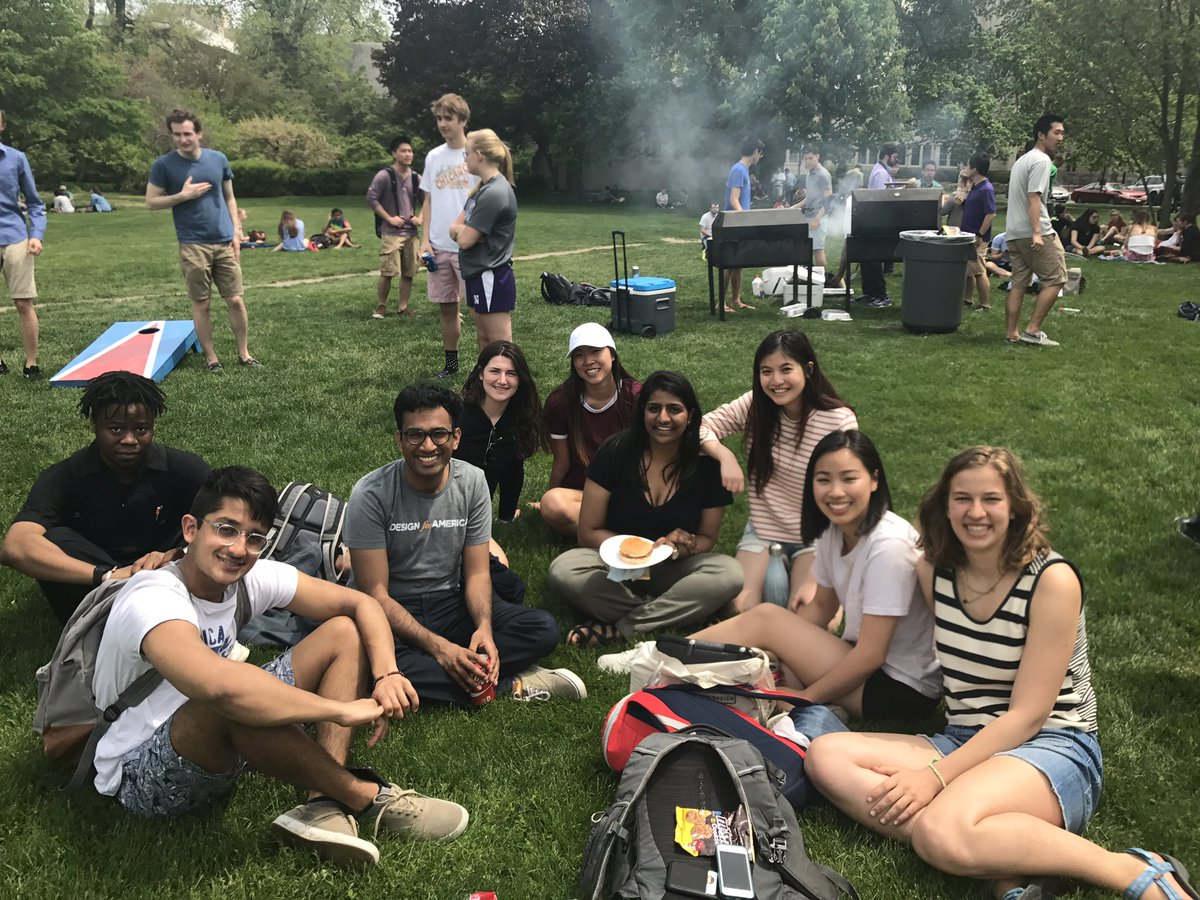
Building Community Outside the Lab
We have a strong culture of students and faculty gathering outside of class times. Every week, a passionate squad of board gamers meet, while a subset of the lab have started their own intramural ultimate frisbee team. Every quarter, we host four social events: (1) community potluck dinners at faculty homes; (2) social outings, which in the past has included ice skating, yoga, and escape rooms; (3) a DTRager which starts with a Saturday evening party, and continues to a Sunday morning lab session of collective research work over catered breakfast; and (4) a themed hackathon, where we spend a night playing with new tech.Work fast in a quarter; grow across quarters.
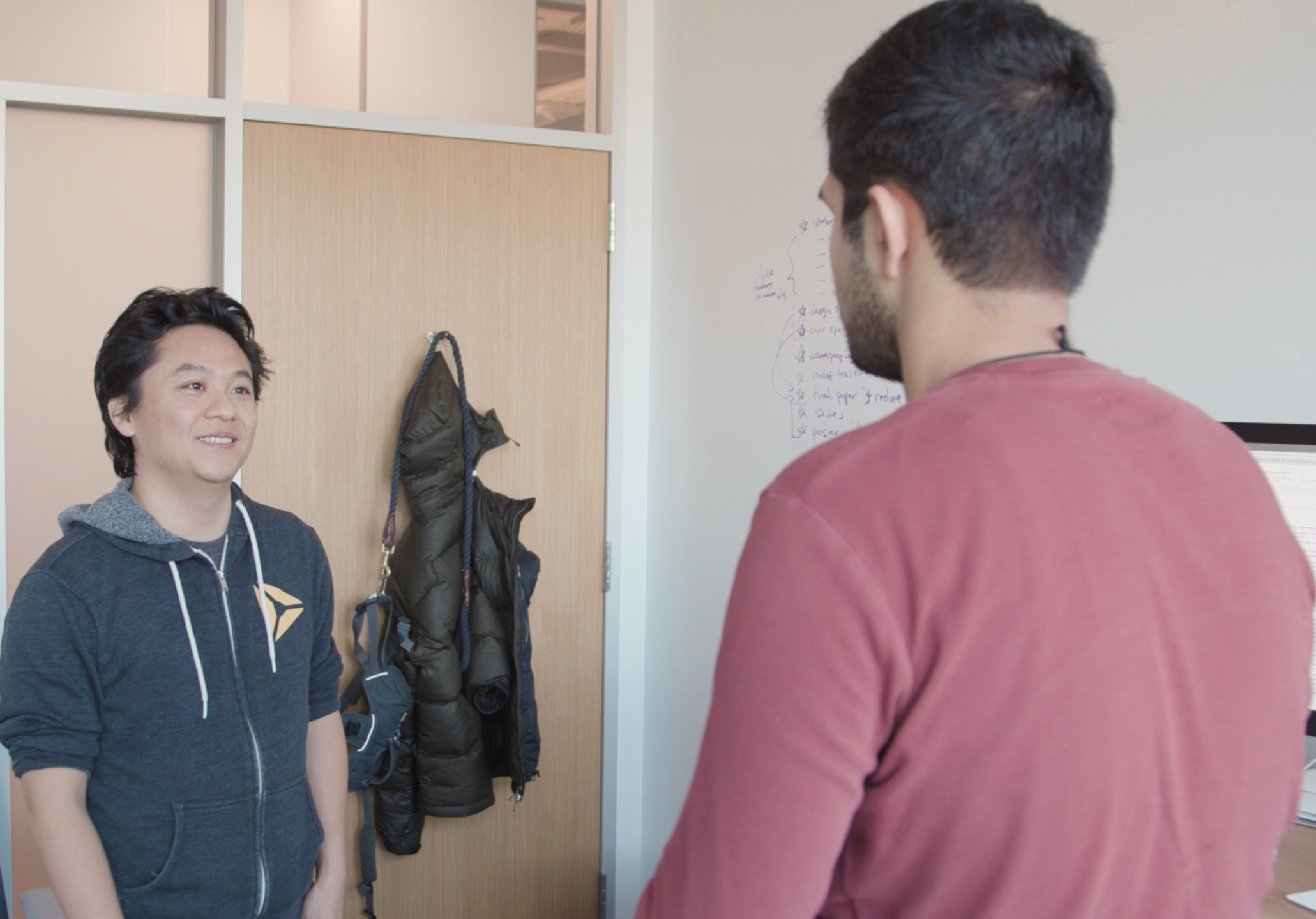
DTR at a Glance
Students participate in DTR for one or more quarters (intended to be repeated). The first time a student participates, the student meets with their mentor in the weeks before a session starts to brainstorm project ideas and research directions. They start with as many as 10-15 ideas, narrow down to a handful that the student’s most interested in, and then dive in to brainstorm and identify a specific project for the quarter. Once a project is identified, a student works individually or in a small group to drive the research.
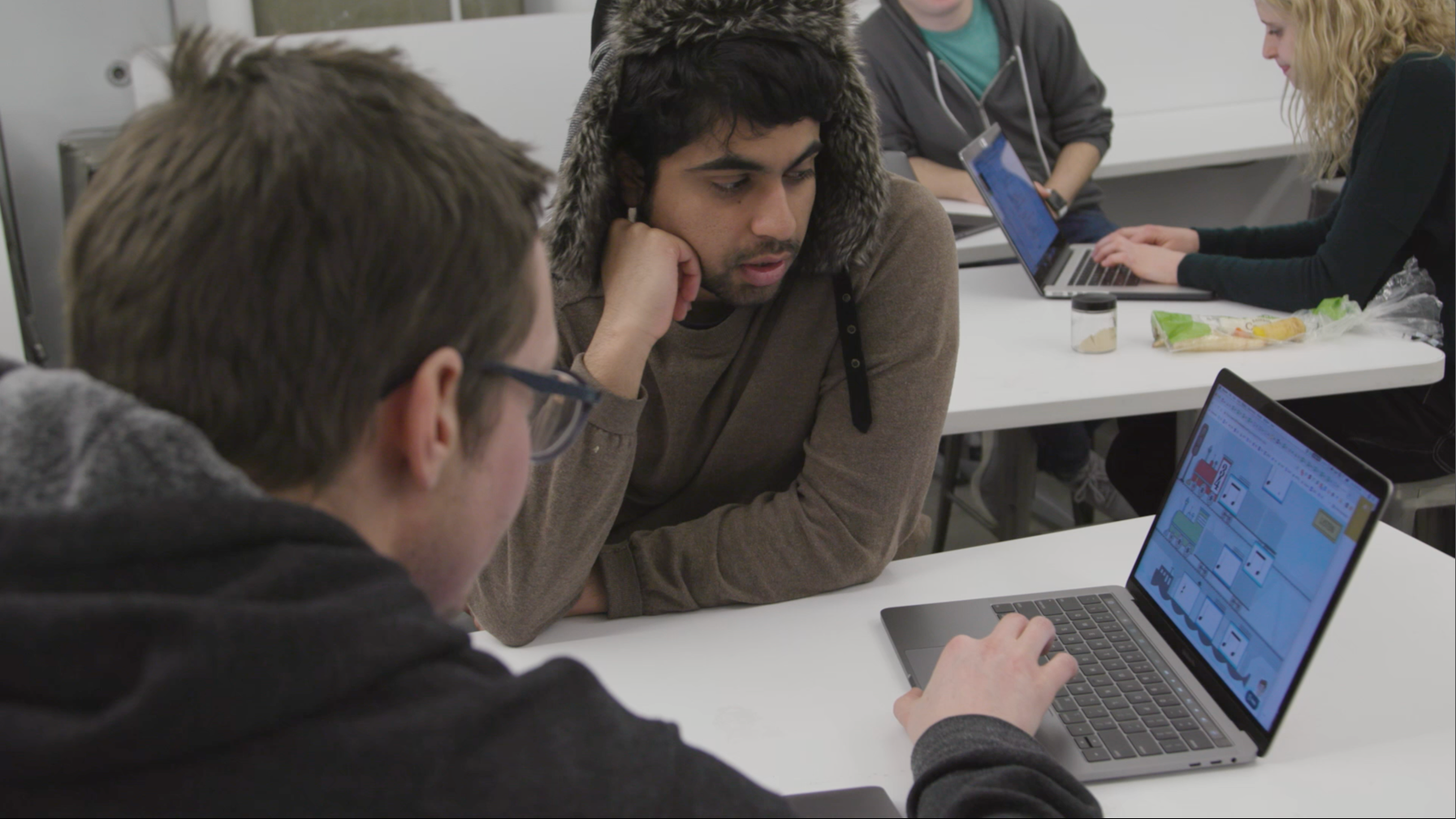
Working Agile During the Quarter
During a single quarter, students explore and iterate over designs, prototype at varying fidelities, build working systems, conduct evaluative studies, and report findings through the DTR website. As a cohort, students demo their prototypes, provide and receive feedback, and help each other resolve technical challenges.
